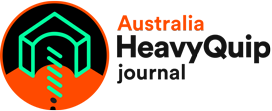Boral is closely monitoring developments in relation to COVID-19 (Coronavirus) and it is taking measures to help manage the risk of spreading the virus.
Boral has a dedicated internal COVID-19 task force and it is relying on expert advice, including information provided by Boral’s international medical and travel security services provider International SOS, as well as advice from specialist global risk consultancy Control Risks.

Boral has protocols in place including business travel restrictions, which are updating regularly, including requirements for employees and contractors whose work includes being on Boral sites, to be quarantined for fourteen days before returning to work if they have visited an affected country, as designated by Boral from time to time.
Boral is also working to ensure it is as prepared as it can be around business continuity planning including minimizing our supply chain risks and business disruption and strengthening remote working capabilities. It has identified business-critical processes, including in manufacturing operations and distribution as well as in finance and IT functions such as accounts payable and payroll. Boral has contingency planning underway including planning for staff absenteeism and planning to minimize any potential supply disruption to customers. It does not rely on a single data center or IT facility.

Some customers have asked about where products are manufactured and if it is safe to accept Boral products onto their sites. Boral’s products are predominantly sourced and manufactured locally in the country in which they are sold. For example, Boral’s construction materials are sourced from the local quarry, concrete and asphalt operations around Australia, together with the majority of cement and clinker needs. Similarly, building products, including plasterboard, are predominantly manufactured locally. While Boral does source some clinker, additives, and equipment from overseas, expert advice is that the primary spread of the virus is through close, unprotected and direct contact with an infected person. There is currently no evidence to support the transmission of COVID-19 through imported goods.
Because Boral operates across many sites –it has more than 670 operating sites globally and an additional 150 distribution sites globally –it has a number of back-ups and alternative locations for customer supply already built into the network. Also, Boral is working to ensure to have adequate stocks of supply of all critical additives and inputs that are imported.
Source: Boral











 Copyright 2021 All rights reserved.
Copyright 2021 All rights reserved.